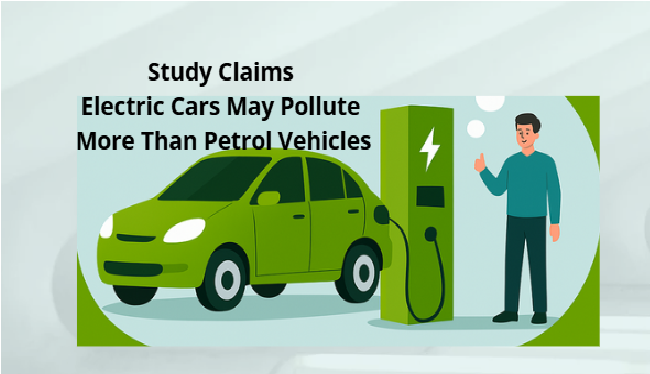Electric Cars May Pollute More: Electric vehicles (EVs) have gained rapid popularity globally as a cleaner alternative to conventional petrol or diesel vehicles. With rising concerns over carbon emissions and environmental sustainability, governments and automakers have actively promoted the transition to electric mobility. However, a recent study challenges the widespread belief that EVs are more eco-friendly than traditional vehicles.
What the Study Reveals
A report by Emission Analytics, a firm specializing in emissions data analysis, suggests that electric cars may actually contribute more to air pollution than internal combustion engine (ICE) vehicles. The key concern raised in the study is particulate pollution—microscopic particles released into the air—not just from tailpipes but also from tyres and brakes.
Heavier Vehicles, More Pollution?
Electric vehicles tend to be heavier due to their large battery packs. This extra weight leads to increased wear and tear on tyres and brakes, resulting in the release of more toxic particles into the atmosphere. Tyres are often made from synthetic rubber, a byproduct of crude oil, and as they wear down, they release fine dust and chemicals that contribute to air pollution.
According to the study, tyre emissions from an EV with a 500 kg (half-tonne) battery can be up to 400 times higher than those from a modern petrol car. While petrol cars still emit pollutants, advancements in exhaust filter technologies have significantly reduced harmful emissions from their tailpipes.
Broader Perspective Needed
Historically, EVs and ICE vehicles have been compared mainly based on tailpipe emissions. However, the study emphasizes that this narrow focus overlooks other critical sources of pollution, such as brake and tyre degradation. A more holistic approach is needed to truly assess the environmental impact of different vehicle types.








